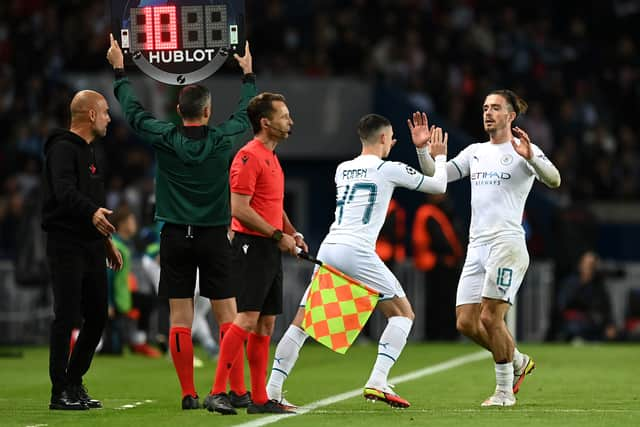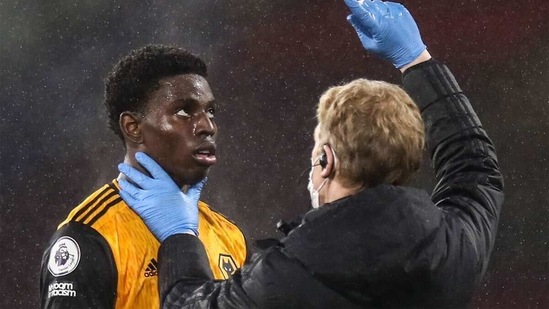Football substitutes are players who come on during the game to replace another player. Players are often substituted when they experience fatigue, injuries, or fail to perform adequately. Strategy reasons sometimes lead to the substitution of a shooter instead of a defender. According to the fundamental Laws of the Game of the International Football Association Board, a player who has been substituted during a match does not participate in the following round. (If you are interested in knowing about betting, then take a look at what Orbit Exchange or Betting Exchange is.)
Football Substitutes Laws
In 1958, substitutions were formally added to the Laws of the Game. Before this, most games were played with no changes allowed. There were a few exceptions, like when a player was seriously hurt or didn’t show up on time.
Over time, both the number of replacements and the number of reserve players who can be chosen have gone up. Now, most games only let you make five changes at most. In some competitions, you can make one more substitution during extra time. A team has up to three “substitution opportunities” during regular time, and one more chance during extra time. Teams can make substitutions during half-time breaks in regular and extra time, as well as during full-time breaks (before the start of extra time), but these substitutions do not count as chances to make substitutions. In addition to any existing game rules, a player who has been injured can also be substituted.
Substitutes On the Bench
The coaches select players and refer to them as “on the bench,” utilizing them as substitutes in football. The substitute joins the field of play, while the player they are replacing is taken off. In most competitions, the number of reserve players has been steadily increasing, with the allowance now ranging from 5 to 9 reserves. During international tournaments, teams typically select 23 players who can all serve as substitutes, unless they are suspended.
A player who frequently makes appearances or scores important goals as a substitute is often informally referred to as a “super sub”.
Read more: How to bet with your own odds on Orbit Exchange?
History of Football Substitutes
In English public school football games, substitutes date back to the early 1860s. Football substitutes were initially employed to fill in for players who were not present. A match report from 1863 states that the Charterhouse eleven played a match in cloisters against some old Carthusians. However, due to the non-appearance of some expected players, three substitutes had to be provided.
Emergency substitutions were utilised at Eton College in the 1850s. References to “substitute” players in mid-1860s matches do not specify whether they were Football substitutes for missing or injured players.
The Laws of the Game originally allowed substitution in 1958, but it was allowed before that. On 7 November 1885, Lockwood Brothers substituted midfielder F. Brears after he injured his leg in an FA Cup first round replay against Notts Rangers.
The first international substitute was used on 15 April 1889 in the Wales-Scotland match at Wrexham. Jim Trainer, the original custodian for Wales, arrived late. As a result, local amateur Alf Pugh stepped in and played for 20 minutes before Sam Gillam took over. Lonia Dvorin replaced Zvi Fuchs in a 1940 match against Lebanon due to an injury. Richard Gottinger replaced Horst Eckel during Germany’s match against Saarland on October 11, 1953, in the 1954 World Cup qualification. World Cup Finals substitutes were banned until 1970.
How many Football substitutes are allowed?

The number of substitutes in a professional game has increased over the years. In 1939, if a player was injured and unable to play, teams had to reduce their roster to just one player. However, starting in 1988, teams could have up to five substitutes, with two of them eligible to play. Later, the number of substitutions grew, causing an increase in the number of people who could serve as Football substitutes to seven.
In 1994, there were three Football substitutes, plus one for an injured goalie. In 1995, there were four substitutes, and starting with UEFA Euro 2016, there was a fourth substitute in extra time in some tournaments.
FIFA suggested and the International Football Association Board agreed to temporarily allow competition organizers to make up to five substitutions (plus one in extra time, if needed) in official matches throughout 2020. We did this to alleviate the impact of the increased fixture congestion caused by the COVID-19 pandemic. But there will only be three chances to make changes, plus one more in extra time if needed. This is in addition to the three chances at halftime before extra time starts, and at halftime during extra time.
Read more: How Many Acres is a Football Field?
What is the Procedure for Football Substitutes?
In the (3) Substitution Procedure part of Law 3, substitutions are controlled.
A player can only be replaced when the game is stopped and with the approval of the referee. The incoming player can join the field of play only after the outgoing player has left. Once the substitute player arrives, the person being replaced ceases to be a player. The person coming in can only enter at the half-way queue. If you don’t follow these rules, you might get a warning (yellow card).
When a player gets a substitute, they sit out for the remainder of the game.
The judge maintains authority over both the players and the football substitutes who remain on the bench without being utilized. Although these individuals may be linked to negative behavior, it’s crucial to acknowledge that they haven’t actually done anything wrong.
In the 2002 FIFA World Cup, Claudio Caniggia got a red card for swearing at the referee while sitting on the bench.
A player cannot be forced to be substituted by a referee
The judge has no authority to replace a player, even if the team manager or captain asks for it. This is in accordance with the Laws of the Game. If a player refuses to leave, play continues as per Law 3 (3) Substitution Procedure. If players waste time or behave poorly by refusing to exit the field, they may receive a warning (yellow card).
When a player gets a red card, they coaches cannot substitute them. The team will have to play with one less person. In case the goalkeeper gets a red card, the coach may choose to bring in a substitute outfield player. This allows the backup goalkeeper to join the game. As an example, Manuel Almunia replaced Jens Lehmann in the 2006 UEFA Champions League Final. This happened when Lehmann was red-carded early in the match.
The coach substituted Robert Pires, the midfielder. An outfield player must always play as the custodian. This is regardless of any changes or available options. Defender John Terry stepped up to the challenge when both Chelsea goalkeepers, Petr Čech and Carlo Cudicini, sustained injuries during the same game. Terry admirably took on the role of goalkeeper for the remainder of the match, even donning the shirt of third-choice goalie Hilário.
Read more: Why is American football called football
Five Subs Football
FIFA, the confederation, or the National Football Association will determine the number of football substitutes allowed in any official competition match, up to a maximum of five, as per the Rules of the Game. Also:
There can be up to six substitutes used in national A team games.
In all other games, additional substitutes may be utilized if both teams reach a mutual agreement on a specified number and inform the judge beforehand.
If the judge is not informed or if a deal is not made before the game, there can be a maximum of six substitutes.
Concussion Football substitutes

In October 2019, the International Football Association Board (IFAB) initiated a discussion on the possibility of introducing additional substitutes for players who may have suffered a concussion during a game. In a statement earlier this year, Michel D’Hooghe, the head of FIFA’s medical committee, expressed a willingness to discuss the issue of concussion substitutes in football.
Additionally, UEFA has requested that FIFA and IFAB permit interim Football substitutes for players who may have suffered head injuries. Five years prior, the FIFA Executive Committee had deliberated on this concept. However, the general consensus was that the regulation would negatively impact the “universality” of football. Concerns were raised about the challenges of implementing it at the local level and the potential for abuse, such as gaining an extra substitution or wasting time.
UEFA implemented a regulation in 2014 that allows referees to halt games for up to three minutes to evaluate head injuries. The team doctor had to verify the players’ suitability before they could resume play. The FIFA World Cup of 2018 saw a similar adoption of the three-minute regulation. The 2014 FIFA World Cup had high-profile head injuries, which prompted FIFPro to demand that FIFA reevaluate its concussion protocol. As a result, changes were made.
New rules for Concussion Football Substitutes
IFAB first recommended a ten-minute evaluation interval for concussion-suspected players, with a substitute replacing them. IFAB appointed a sports medical and football expert panel in December 2019 to examine and treat suspected concussions during matches. The IFAB said in February 2020 that it would create concussion substitute procedures for studies after receiving input from the Concussion Expert Group.
The expert committee said in October 2020 that studies will begin in 2021 using an “additional permanent substitution” strategy to preserve players’ health using a “if in doubt, take them out” mindset. IFAB approved the protocol and study on 16 December 2020. The process removes concussion suspects from the contest and replaces them with Football substitutes.
Minimizing the demand on medical staff to make rapid assessments, protecting players from incurring numerous head injuries in a match, and being usable at all levels of the game. FIFA and IFAB must approve competition organizers for the trial period from January 2021 to March 2022.
In January 2021, FIFA stated it would test concussion Football substitutes at the 2020 FIFA Club World Cup. In February 2021, the Premier League, FA Women’s Super League, FA Women’s Championship, and FA Cup began the experiment. On 9 February 2021, West Ham United made a significant move in English football. During an FA Cup match against Manchester United, they replaced Issa Diop with Ryan Fredericks at halftime. This decision came after Diop suffered a head injury, marking the first concussion substitution in the sport. Trials are also underway in the Eredivisie, Eerste Divisie, and KNVB Cup.
There are more different betting information on Germany betting exchange.
Also read: How to open an Orbit Exchange account from the Orbit Exchange Portal?
